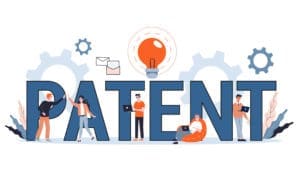 According to the World Intellectual Property Review, a record high of 275,900 international patent applications were filed in 2020. Just over 59,000 of those originated in the United States. For these companies, filing for an international patent, or what’s known as a “PCT” (patent filed under the patent cooperation treaty), is the first step in the process of obtaining patent protection in another country. After receiving an international patent, the applicant has 30 months to file the patent in whatever countries are applicable to the invention.
According to the World Intellectual Property Review, a record high of 275,900 international patent applications were filed in 2020. Just over 59,000 of those originated in the United States. For these companies, filing for an international patent, or what’s known as a “PCT” (patent filed under the patent cooperation treaty), is the first step in the process of obtaining patent protection in another country. After receiving an international patent, the applicant has 30 months to file the patent in whatever countries are applicable to the invention.
Filing a patent application in a foreign country is painstaking work. It’s critical to receive an accurate translation of the invention’s summary, datasheets, specifications, and other supporting documents of the complete application.
Along with accuracy, another important aspect of translating material for patent applications is consistency. Because of the intensity of the project, several translators may be involved in the work. It’s best to begin the process by compiling a glossary of technical terms related to the specific invention. This will take all the guesswork out of the translation process, making it faster and ensuring that each translator uses the same terminology.
The difference between two chemical compounds that sound similar might seem minimal to the inexperienced, but it makes a big difference for a patented substance.
In 1960, a Japanese company, Kanzake Paper Manufacturing Company, learned their lesson the hard way. They filed a patent in the United States for the manufacturing process of three phthalide compounds. They didn’t notice until after the filing was processed that some of the ingredients were incorrectly translated: “nitric acid” was translated to “nitrous acid,” and “iron” was translated to “ferrous oxide.” The results of these errors were substantial to the patent. When they asked the court to revise the patent, the judge deemed these changes to alter the substance of the patent and would not accept the amendments. It took Kanzake eleven years to successfully appeal this decision and correct the patent so they could begin production.
A professional translator with experience in international patents knows how critical these details are. They will also understand how to translate legal terms into the correct terms for the target country, so there is no confusion about the exact definition of the words used in the application. Translated patent applications should include a complete record of its compilation, including identification of the individual who created each source term, names of all reviewers, tracking information of all revisions, a record of the professional who performed the translation, and a record of the person providing the final approval of the source terms and the translations.
Get the most accurate translations for your international business at The Perfect Translation.
The Perfect Translation uses teams of language experts who have professional experience in the legal topics you’re dealing with–from patents to contracts, disclosures, and advertising materials. Don’t leave your important translation work to computerized bots or generalized linguists. Contact us today for a free quote and learn more about what makes The Perfect Translation the best place to get accurate legal translations.

Leave a Reply